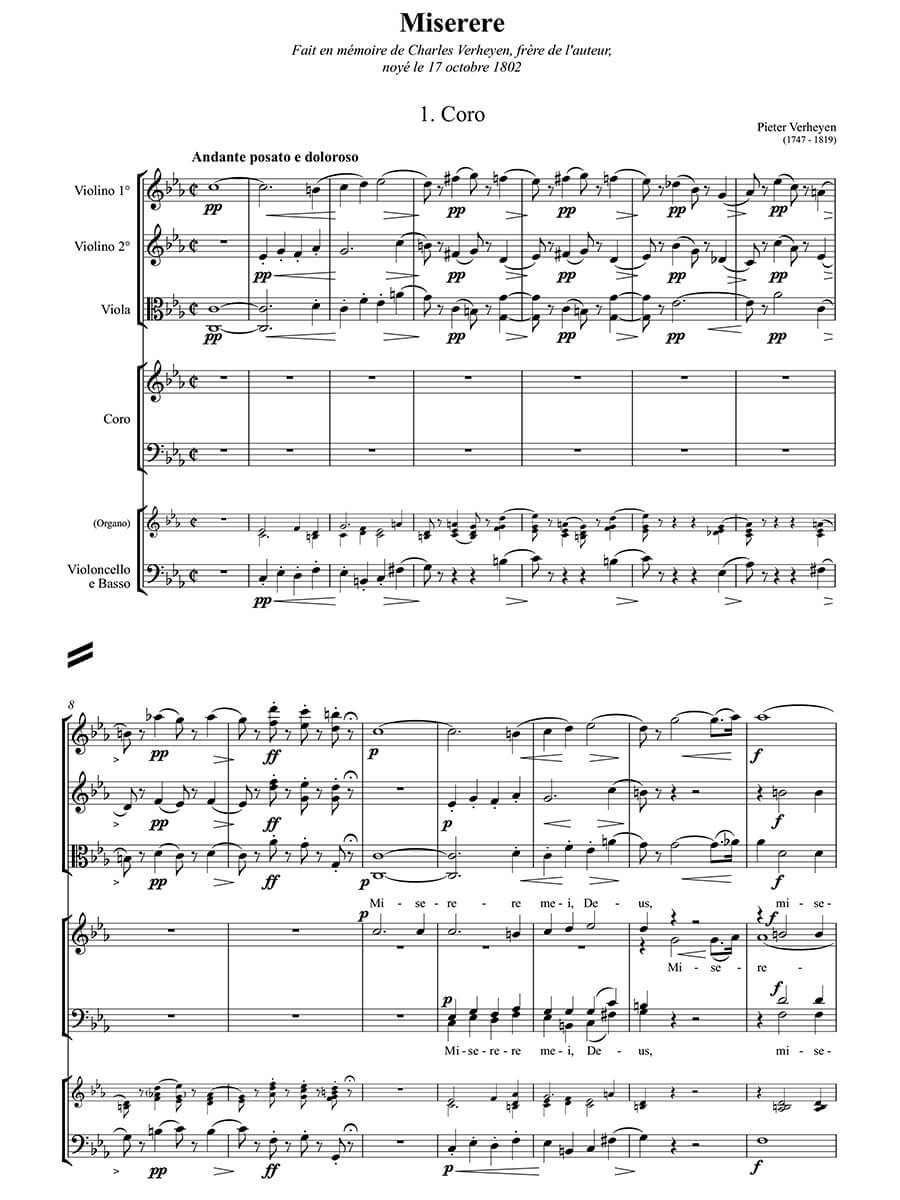Miserere for choir, strings and organ (first print / score and parts)
Verheyen, Pieter
42,00 €
Preface
Pieter Verheyen – Miserere (1802)
(Ghent, 15 January 1747 – Ghent, 11 January 1819)
Pieter (Pierre) Emmanuel Verheyen is in many ways an interesting composer, even though for a long time he had been forgotten.1 His contribution to music in the Southern Netherlands refutes the view, prevalent until recently, that the late eighteenth and early nineteenth centuries were an absolute creative low point in those regions.
Pieter Verheyen’s father was a singing teacher and singer-sacristan in the Cathedral of Ghent. Allegedly, as a boy Pieter received lessons from the cathedral organist Jean Joseph Boutmy, later also from the Brussels conductor and composer Ignaz Vitzthumb and from François Krafft, singing master at the Ghent Cathedral. Yet as a composer he seems to be largely self-taught. He was also a singer (altus/tenor), church chapel master, organist and violinist.
In his career we can distinguish three periods. During the first period he alternated between church and opera: he sang in churches; for a few years he was part of Jacob Neyts’s travelling company De Vlaemsche Opera and of a similar ensemble by Ignaz Vitzthumb; he worked as a conductor in Maastricht and from 1784 to 1792 he was singing master at the chapter of Saint Pharaildis (Sint-Veerlekapittel) in Ghent. In the years 1786-1790 he enjoyed the support of the Ghent bishop Ferdinand Maria de Lobkowitz as ‘compositeur ordinaire de son altesse’. In that first period, in addition to liturgical music, he also composed three operas (including one to a libretto in Dutch) and, after the Brabant Revolution of 1789, occasional works for the États Belgiques Unis (the United Belgian States). In the second period, coinciding with the first six years under French occupation (1795-1801), he wrote patriotic songs and cantatas in the spirit of the revolutionary regime. It is not by chance that the third period starts in 1801, the year of the Concordat between Napoleon and the pope, which gives the Church more autonomy again. In this period Verheyen composes a lot of religious music, besides also romances, keyboard music and pieces for wind ensemble. …
Read full English or Flemish preface > HERE
Score Data
| Special Edition | The Flemish Music Collection |
|---|---|
| Genre | Choir/Voice & Instrument(s) |
| Size | 225 x 320 mm |
| Specifics | Set Score & Parts |
| Printing | First print |
| Pages | 128 |
